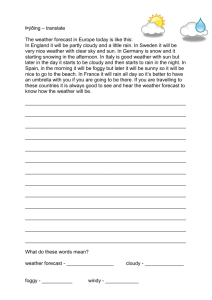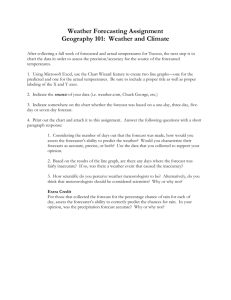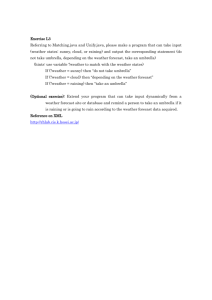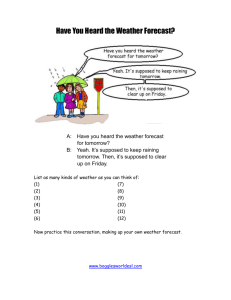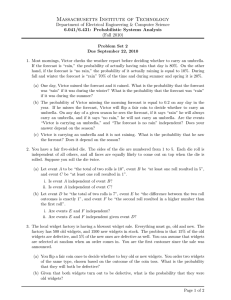Massachusetts Institute of Technology (Spring 2006)
advertisement
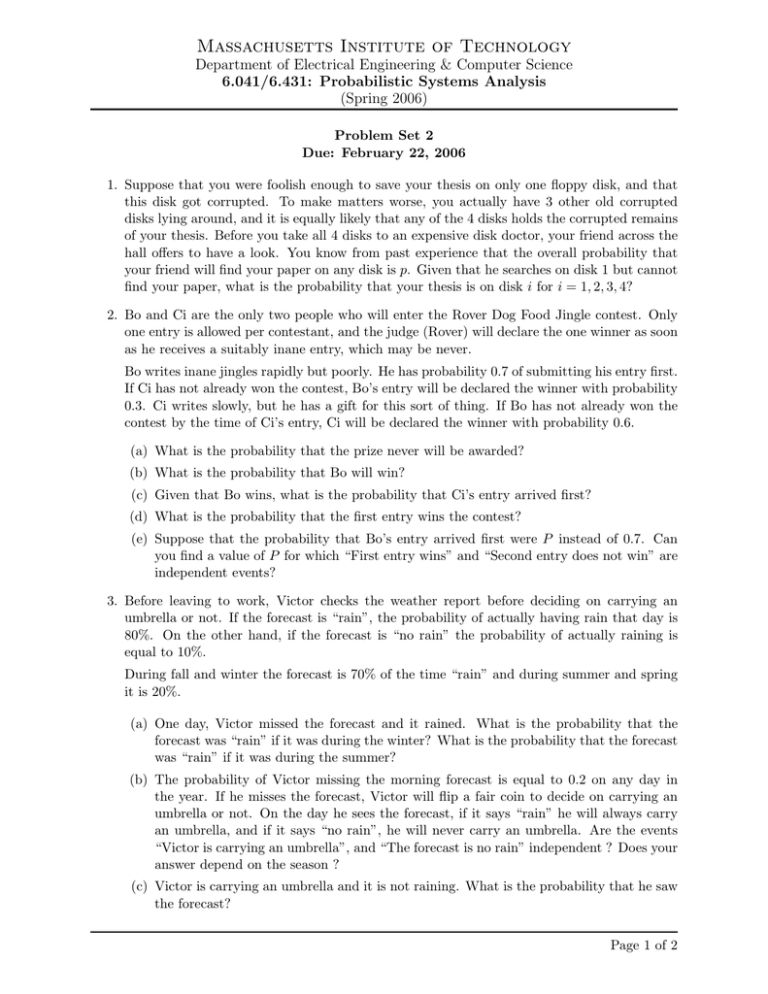
Massachusetts Institute of Technology Department of Electrical Engineering & Computer Science 6.041/6.431: Probabilistic Systems Analysis (Spring 2006) Problem Set 2 Due: February 22, 2006 1. Suppose that you were foolish enough to save your thesis on only one floppy disk, and that this disk got corrupted. To make matters worse, you actually have 3 other old corrupted disks lying around, and it is equally likely that any of the 4 disks holds the corrupted remains of your thesis. Before you take all 4 disks to an expensive disk doctor, your friend across the hall offers to have a look. You know from past experience that the overall probability that your friend will find your paper on any disk is p. Given that he searches on disk 1 but cannot find your paper, what is the probability that your thesis is on disk i for i = 1, 2, 3, 4? 2. Bo and Ci are the only two people who will enter the Rover Dog Food Jingle contest. Only one entry is allowed per contestant, and the judge (Rover) will declare the one winner as soon as he receives a suitably inane entry, which may be never. Bo writes inane jingles rapidly but poorly. He has probability 0.7 of submitting his entry first. If Ci has not already won the contest, Bo’s entry will be declared the winner with probability 0.3. Ci writes slowly, but he has a gift for this sort of thing. If Bo has not already won the contest by the time of Ci’s entry, Ci will be declared the winner with probability 0.6. (a) What is the probability that the prize never will be awarded? (b) What is the probability that Bo will win? (c) Given that Bo wins, what is the probability that Ci’s entry arrived first? (d) What is the probability that the first entry wins the contest? (e) Suppose that the probability that Bo’s entry arrived first were P instead of 0.7. Can you find a value of P for which “First entry wins” and “Second entry does not win” are independent events? 3. Before leaving to work, Victor checks the weather report before deciding on carrying an umbrella or not. If the forecast is “rain”, the probability of actually having rain that day is 80%. On the other hand, if the forecast is “no rain” the probability of actually raining is equal to 10%. During fall and winter the forecast is 70% of the time “rain” and during summer and spring it is 20%. (a) One day, Victor missed the forecast and it rained. What is the probability that the forecast was “rain” if it was during the winter? What is the probability that the forecast was “rain” if it was during the summer? (b) The probability of Victor missing the morning forecast is equal to 0.2 on any day in the year. If he misses the forecast, Victor will flip a fair coin to decide on carrying an umbrella or not. On the day he sees the forecast, if it says “rain” he will always carry an umbrella, and if it says “no rain”, he will never carry an umbrella. Are the events “Victor is carrying an umbrella”, and “The forecast is no rain” independent ? Does your answer depend on the season ? (c) Victor is carrying an umbrella and it is not raining. What is the probability that he saw the forecast? Page 1 of 2 Massachusetts Institute of Technology Department of Electrical Engineering & Computer Science 6.041/6.431: Probabilistic Systems Analysis (Spring 2006) 4. You are lost in the campus of MIT, where the population is entirely composed of brilliant students and absent-minded professors. The students comprise two-thirds of the population, and any one student gives a correct answer to a request for directions with probability 34 . (Assume answers to repeated questions are independent, even if the question and the person asked are the same.) If you ask a professor for directions, the answer is always false. (a) You ask a passer-by whether the exit from campus is East or West. The answer is East. What is the probability this is correct? (b) You ask the same person again, and receive the same reply. Show that the probability that this second reply is correct is 12 . (c) You ask the same person again, and receive the same reply. What is the probability that this third reply is correct? (d) You ask for the fourth time, and receive the answer East again. Show that the probability it is correct is 27 70 . (e) Show that, had the fourth answer been West instead, the probability that East is nev9 . ertheless correct is 10 Your friend, Ima Nerd, happens to be in the same position as you are, only she has reason to believe a-priori that, with probability , East is the correct answer. (f ) Show that whatever answer is first received, Ima continues to believe that East is correct with probability . (g) Show that if the first two replies are the same (that is, either W W or EE), Ima continues to believe that East is correct with probability . (h) Show that after three like answers, Ima will calculate as follows (in the obvious notation): P(East correct|EEE) = Evaluate these when = 9 , 11 − 2 P(East correct|W W W ) = 11 . 9 + 2 9 20 . G1† . Alice and Bob love to challenge each other to coin tossing contests. On one particular day, Alice brings 2n + 1 fair coins, and lets Bob toss n + 1 coins, while she tosses the remaining n coins. Show that the probability that after all the coins have been tossed Bob will have gotten more heads that Alice is 1/2. † Required for 6.431; optional for 6.041 Page 2 of 2
